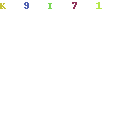A bench of Justices M R Shah and Bela M Trivedi held a special sitting on Saturday.
While Saibaba’s counsel, Senior Advocate R Basant, asked the court to grant house arrest in view of his medical condition, Solicitor General Tushar Mehta, appearing for the Maharashtra government, opposed the plea.
“This request for house arrest is coming frequently from Naxals, from Urban Naxals. All these offences can be committed even when they are in house arrest, with a phone,” said Mehta, and urged the court to reject the plea.
Subscriber Only Stories
Saibaba, who was sentenced to life imprisonment in 2017, is currently lodged in the Nagpur central prison.
Citing absence of valid sanction under the UAPA and declaring the trial proceedings in a Gadchiroli court “null and void”, the Nagpur bench of the Bombay HC had discharged Saibaba and four others on Friday — a sixth accused died in August this year. The Maharashtra government had moved the SC, challenging the HC order.
“Having heard learned counsel for the respective parties… we are of the opinion that this is a fit case to exercise powers under Section 390 CrPC and to suspend the impugned judgment and order passed by the High Court,” the SC bench said, staying the release of all the accused. Section 390 CrPC deals with the arrest of accused in appeal from acquittal.
Advertisement
The SC said the HC had not gone into the merits of the case, or the trial court judgement convicting them, or “the seriousness and gravity of the offences for which the accused were convicted”. “The HC did not look into the merits, but found a shortcut,” the bench said, adding that “the offences are very serious, against the sovereignty and integrity of the country”.
The bench also agreed with Mehta’s submission that the HC did not pass an acquittal order but a discharge order, and no finding of the trial court was reversed. Justice Trivedi said it is a settled law that an acquittal order cannot be passed by an appellate court without reversing the findings of the trial court’s conviction order.
The bench said it “is prima facie of the opinion that a detailed scrutiny is required so far as the impugned judgment and order passed by the HC is concerned” and added that several important questions of law need to be considered.
Advertisement
Listing these questions, the bench said it would examine “whether considering Section 465 CrPC… after the conclusion of the trial and conviction of the accused on merits and appreciation of evidence, the appellate court is justified in discharging the accused… on the ground of irregular sanction, if any”.
Section 465 CrPC states that a trial court order shall not be reversed on account of irregularity in any sanction for prosecution, unless, in the opinion of that court, it had resulted in a failure of justice.
The court will look into whether “in a case where the learned trial court has convicted the accused on merits on appreciation of the evidences on record and thereafter having found the accused guilty for the offences for which they are tried… the appellate court is justified in discharging the accused on the ground of want of sanction and/ or irregular sanction, more particularly when the objection with respect to no sanction was not specifically raised by an appropriate application during the trial, and trial was permitted to be proceeded further and thereafter the trial court has convicted the accused on appreciation of evidences on record?”
Asking why the accused had not raised the issue of sanction during trial, the bench said it will also consider the “consequences of not raising the dispute with respect to sanction during the trial and thereafter permitting the trial court to proceed further, and despite the opportunities given to the accused even at the stage of recording, the further statement under Section 313 CrPC when no objection to the want of sanction at the time of taking cognizance was taken”.
Appearing for the state, Mehta said the accused had not raised the ground of sanction at the stage of trial, and had only done so at the appellate stage. He also argued that the seriousness and gravity of the offences for which the accused were convicted cannot be overlooked.
Advertisement
Contending that the purpose of sanction is to ensure that a person is not put to a vexatious trial, Mehta submitted that “if accused are found guilty after a full fledged trial, there is no vexatious trial”.
Senior Advocate R Basant, appearing for Saibaba, contended that there was no sanction on the date of taking cognizance or framing charge and as such, Section 465 CrPC would not apply, as the provision speaks about error or irregularity of sanction, not the absence of it.
Advertisement
The court sought to know if the accused had raised any specific objection regarding the absence of sanction during the trial.
Basant said no application was filed but it was raised verbally at the stage of cross-examination. He urged the court not to suspend the HC judgement and sought to draw its attention to Saibaba’s medical condition, saying that he was “90 per cent physically disabled” and has multiple other ailments. He said the allegation is only of him being the brain, being ideologically involved and nothing more.
Advertisement
Justice Shah responded that “so far as Maoist activities are concerned, the brain plays a significant role”.
The court will hear the case next on December 8.
Source: https://indianexpress.com/article/india/saibaba-acquittal-supreme-court-maharashtra-bombay-hc-8209802/



